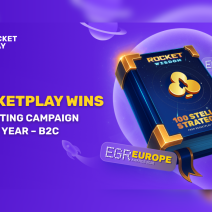
Responsible Gaming Education Month roundtable
As Responsible Gaming Education Month (RGEM) rounds to a close in the US, Dr Michael Auer, Managing Director of OpenBet’s Neccton, and Joann Pierce, Chief Commercial Officer at Games Global USA, share their insights into the biggest responsible gaming and player protection challenges currently facing operators in America’s regulated states and the tools needed to secure a sustainable and safer future for the industry.
What are the key player protection challenges faced by operators and suppliers in 2024?
MA: Evolving global gaming markets, such as the US and LatAm, demand operators have in-depth insights into their players’ behaviour. With high player volumes, this can pose a challenge for those without up-to-date technology. Operators have the responsibility to take proactive steps to protect players from harm, but in new jurisdictions such as Brazil and Peru, it is vital for them to win the trust of their customers and promote responsible gaming from the off. In a recent Hibou survey, of 2,839 Brazilian respondents, 16% reported experiencing financial issues due to their gambling, which should make combating harm and effectively tracking their player base a core priority for operators.
For suppliers, developing responsible gaming tools that meet the needs of the market is essential. By achieving this, they can take positive steps towards building a sustainable and safer industry. Of course, to be confident their tools are up-to-date and will have a notable impact on reducing potentially harmful behaviours, they must be informed by the richest data available from real players. Peer reviewed research that uses datasets from operators themselves is the best way to do this.
JP: There are very different player protection challenges for operators who are directly accepting wagers from the player vs suppliers who are typically offering their products to the operators – to offer to the player. The main difference is complete oversight of a player’s activity vs partial. An operator can join the dots and see all of a player’s conduct across every wager and vertical, whereas a supplier will typically only see the fraction of that play which occurs on their products. Working together, suppliers can help operators with contextualising to help fulfil their duty of care.
Suppliers will typically operate across numerous states, so where state-by-state, game design and safer gambling requirement variations exist it can pose a challenge. In this regard, continued moves towards harmonisation across states would be beneficial for all stakeholders.
What tools and resources can be provided to help operators implement effective responsible gaming measures?
JP: We have mentioned that harmonised standards assist players, operators, suppliers and regulators. However, measures should be evidence based to ensure that we are putting in place solutions which we know are going to be effective and which help all parties target their resources to maximum effect. From an operator’s perspective, access to any player data that can help build an accurate picture undoubtedly helps in delivering that duty of care. Following the lead of other countries, the UK is seeing the implementation of centralised industry-led exclusion registration via the GamProtect system.
Results from the pilot stage looks promising and with some US focussed operators having been involved in that pilot, it would be interesting to see if the US states could come together to replicate such a register to protect the most vulnerable players when for example they physically relocate between states.
MA: Operators looking to succeed in their respective markets must demonstrate superior responsible gaming capabilities and may turn to technology to support their efforts. OpenBet’s Neccton empowers operators to effectively track player behaviour in real-time, offer limit setting and pop-up messaging functions, and integrate anti-money laundering and fraud detection tools.
My research in this sphere has shown that real-time interventions, such as reality checks, improve the effectiveness of player protection efforts. Our software, which is informed by academic research and adapted in line with the latest insights, is supported by a dedicated compliance consultancy service which gives operators the confidence to fulfil their responsible gaming responsibilities.
What are the key priorities for suppliers in promoting responsible gaming in the years to come?
MA: Suppliers must keep up with the latest developments in responsible gaming tools and research as markets evolve. I have published more than 50 peer reviewed studies in academic journals related to safer gaming and continue to conduct contemporaneous research into player protection. Utilising real player data and insights from experts will help suppliers evolve their offerings to match the changing needs of operators and their customers.
Additionally, staying on the pulse of recent regulatory developments must also be a priority, as shortcomings can delay the production of much-needed software that instils confidence in operators and regulators alike and meets the needs of the market.
JP: The main focus for suppliers around safer gambling relates to game design. There isn’t that direct contact with the players, so the scope of direct interaction is removed. In this regard, harmonisation of standards and requirements around game design is hugely beneficial to all stakeholders.
We would love to see some of the excellent academic work being undertaken in this field being picked up, endorsed and incorporated into formal standards by regulators.
All suppliers are willing to do whatever it takes to ensure their products help keep players safe but we want to ensure changes are going to achieve the desired outcome and the best way to do this is to take the evidence based approach.










